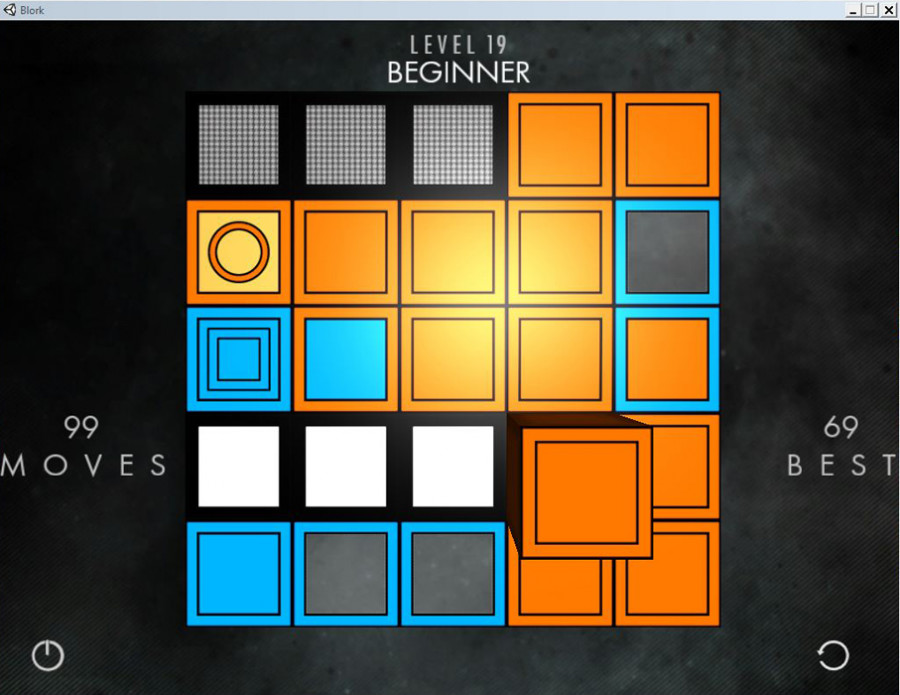Rubik’s Q*Bert
Computation Arts Students to Take the App World by Storm
It’s beautifully built, infuriatingly addictive, coming to a mobile device near you—and designed in the EV Building.
While some of you sorry lot have been buried in books, Concordia’s computation arts and design students have been buried in code, earning their stripes as the next generation of tech artists.
And for some of those finishing up their Bachelor of Fine Arts degrees, that means taking CART 498F, where they get to work on their game-design skills.
Meet developer and programmer Chris Drogaris, a fourth-year CART student whose video game Blork is set to make waves in the indie gaming world.
Blork is like a hybrid of Rubik’s Cube and the classic Nintendo Entertainment System game Q*Bert, says Drogaris.
The object is to colour different tiles on a 5×5 grid by stamping a rolling cube on a tile that acts like a kind of ink blotter, and then rolling over the remaining tiles of the corresponding colour. It puts a 3-D puzzle on a 2-D plane, translating perfectly onto a computer or smartphone screen.
Drogaris says CART’s accepting environment gives students the space to flesh out their ideas.
“It’s very open. I don’t know if they help you become more creative, but the fact that they let you be more open lets you use your own creativity,” said Drogaris.
Along with partner and designer Dario Farina, the two have thus far created 80 levels—and have ambitions to get to 150.
“It takes, at most, an hour a level. I created a level creator, so you just have to move the pieces and it’s very easy. Dario creates the levels, he moves the blocks around and tests it to make sure it’s solvable,” said Drogaris.
The final presentation of Blork for the class wowed their peers, who had no idea that the calibre of the game would be as high as it was. The Tron-esque visuals, classic 8-bit-style music and challenging levels are sure to create buzz in the tech art community once it hits the app world.
Currently, Farina is studying type design at the Consorzio del Politecnico di Milano in Milan, Italy. While Drogaris is finishing up his final year in the program, he has no aspiration to go on to work for bigger gaming companies, preferring to develop programs that he determines the direction of.
Know of any radical tech projects spearheaded by ConU students? Email us at fringe@thelinknewspaper.ca





_600_375_s_c1.png)